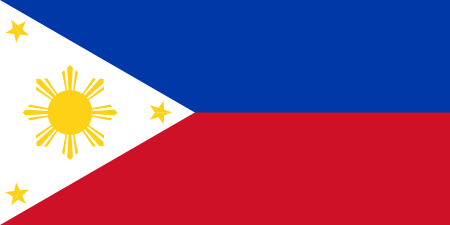
The Climate Change Commission (CCC) welcomed the Department of Finance’s (DOF) successful mobilization of EUR 250 million (PHP 15.79 billion) in concessional funding from the French government through the Agence Française de Développement (AFD). Secured under the Climate Change Action Plan, Subprogram 2 (CCAP2), the funding is set to fast-track the country’s transition to a climate-resilient and low-carbon economy. The CCC recognizes that this milestone supports the effective execution of the Philippines’ Nationally Determined Contribution Implementation Plan (NDCIP), which outlines the country’s roadmap for achieving its climate targets through sectoral actions, enabling policies, and access to finance, technology, and capacity-building. This financing reinforces the NDCIP’s goal of accelerating a just, inclusive, and science-based transition to a low-carbon and climate-resilient development pathway. The CCC is a key implementing agency of policies under the CCAP framework, particularly those that strengthen climate governance, resilience building, and low-carbon development pathways. The Commission expresses its gratitude to the Government of France, AFD, and partner institutions, including the Asian Development Bank and the Japan International Cooperation Agency, for their sustained support. “This investment reflects the growing confidence of the international community in the Philippines’ climate leadership,” said CCC Executive Director Robert E.A. Borje. “It also shows how strong partnerships anchored on shared principles and climate justice can create life-changing, lasting impact, especially for our most vulnerable communities. We must ensure that every peso is matched with integrity, urgency, and inclusive action on the ground,” Borje added. Anchored on President Ferdinand R. Marcos Jr.’s call for innovative, inclusive, and transformative solutions to the climate crisis, the agreement reflects a shared global commitment to empower vulnerable communities and accelerate the country’s transition to a low-carbon economy. The CCC stands ready to work closely with the DOF and relevant agencies in ensuring that climate finance translates into transformative action for Filipino communities on the frontlines of the climate crisis.

MANILA - The Climate Change Commission (CCC) welcomed the Asian Development Bank’s (ADB) forthcoming approval of a US$400 million loan to strengthen marine ecosystems and advance the Philippines’ blue economy under its National Adaptation Plan (NAP). The loan, announced by ADB President Masato Kanda at the 16th Brunei Darussalam-Indonesia-Malaysia-Philippines East Asean Growth Area (BIMP-EAGA) Summit, is set for approval this year and marks a pivotal step in scaling up climate adaptation efforts. The CCC underscored the importance of the loan as a key enabler of marine protection and the sustainable management of the country’s coastal resources. Healthy marine ecosystems, most of which serve as vital carbon sinks, also provide livelihood opportunities for millions of Filipinos and act as buffers against climate-induced disasters. CCC Executive Director Robert E.A. Borje described the financial assistance as a crucial step toward the implementation of the NAP. “This step may be perceived negatively because it is a finance facility, but viewed strategically, it is an investment that will strengthen our capacity to prepare for and respond to climate-related disasters. In the long term, it can significantly reduce losses and the need for emergency funding,” Borje said. “The funding presents a great opportunity to bolster our oceans and ecosystems, which are among our most important natural defenses against the climate crisis,” he added. The funding is being made available to assist the country in the implementation of its National Adaptation Plan. The NAP serves as the Philippines’ primary policy tool for building long-term climate resilience. It guides adaptation strategies focused on vulnerable communities and ecosystems. Developed under the leadership of President Ferdinand R. Marcos Jr., it reflects his vision of a climate-resilient and climate-smart Philippines. The NAP also prioritizes resource allocation, ensures policy coherence, mobilizes financing, and promotes inclusive stakeholder participation. One of its key priorities is the rehabilitation and restoration of coastal and marine ecosystems. This includes safeguarding vital coastal habitats such as mangroves, coral reefs, seagrass beds, and other ecosystems with strong adaptation potential. Based on the NAP assessment, ecosystems provide critical protection against climate hazards and contribute billions of pesos annually through ecosystem services. Fisheries, which form part of these ecosystems, are a major source of livelihood and contribute to 75% of the food consumed in the country, which is sourced locally. However, it was also indicated that these natural systems are increasingly at risk due to human-induced activities and climate-related impacts. This underscores the urgency of conserving and protecting our oceans to secure food sources, community resilience, and sustainable development. This underscores the strategies outlined in the NAP to build resilience across key sectors, including the blue economy, by aligning national and local priorities with climate risk assessments and science-based planning. It includes specific strategies to support marine ecosystems and coastal communities, including strengthening infrastructure resilience, safeguarding livelihoods through social protection and regulatory measures, and scaling up nature-based solutions such as mangrove restoration and coral reef rehabilitation. The CCC remains hopeful for the loan’s approval and reaffirms its commitment to mobilizing resources to protect the country's future against the intensifying impacts of climate change. For more information on the CCC’s climate mainstreaming activities, visit www.climate.gov.ph and www.facebook.com/CCCPhl.

Pandan, Antique – In a convergence of efforts, the Climate Change Commission (CCC), in partnership with the Office of Senator Loren Legarda and the University of the Philippines Visayas Extension Campus in Pandan, Antique, spearheaded “Daluyong ng Pagbabago: Adaptation and Resilience for Our Oceans,” an action-oriented forum that aimed to draw commitments from local stakeholders to collaborate on sustainable ocean management. The forum convened over 100 ocean experts, community leaders, scientists, youth advocates, and policymakers to align national and local strategies for ocean resilience and climate adaptation. It aimed to strengthen multisectoral collaboration on ocean governance and called for inclusive implementation of the National Adaptation Plan (NAP). In her keynote address, Senator Loren Legarda emphasized the Philippines’ moral and ecological duty to lead ocean sustainability efforts, especially as one of the world’s most vulnerable marine nations. “The Ocean is not just a backdrop. It is our lifeline,” she said. “When corals die, so do fish stocks. When mangroves vanish, villages lose their shield against storms. When plastic chokes our waters, it chokes our children’s future.” She anchored her message on Sustainable Development Goal 13 (Climate Action) and 14 (Life Below Water), warning that “global targets mean little without local action.” She highlighted key legislation she has championed, such as the Climate Change Act and the Philippine Ecosystem Natural Capital Accounting System (PENCAS) Act, and called on local governments to follow Antique’s lead by banning single-use plastics and investing in marine sanctuaries. She also reiterated her commitment to passing the Blue Economy Act to institutionalize sustainable ocean practices. As the Philippines prepares for its participation in the Third United Nations Ocean Conference (UNOC3) in Nice, France, Legarda said, “We carry a simple truth: The ocean is a solution. It is our bridge to each other, to survival, to legacy. Let us become that unstoppable tide.” Furthermore, CCC Executive Director Robert E.A. Borje emphasized that the Philippines, as one of the most ocean-reliant and climate-vulnerable nations, must lead global efforts in ocean resilience, not just with plans, but with action. He underscored the need for urgent, inclusive implementation of national priorities such as the National Adaptation Plan, the Philippine Development Plan, and the Blue Economy Roadmap, calling for stronger cross-sectoral collaboration and the amplification of marginalized voices, especially those of fisherfolk, Indigenous Peoples, women, and the youth. “But plans are not enough,” Borje said. “What we need is shared commitment to see these plans through.” He emphasized that even the most comprehensive strategies will fall short without decisive, collective action. Moreover, he urged institutions to break down silos, build bridges, and ensure that climate and ocean solutions are rooted in equity and inclusivity, especially for the most vulnerable communities who are at the frontline of climate impacts. The forum also featured case study presentations from the University of Antique–Tario Lim Memorial Campus, UP Visayas, Rare Philippines, and Department of Environment and Natural Resources Western Visayas, showcasing innovative local solutions to marine biodiversity protection, sustainable fisheries, and coastal adaptation. During a presentation on community empowerment and policy advocacy for coastal resilience, Lovella Mae Magluyan, Program Manager of Rare Philippines in Antique, underscored the vital but often overlooked role of fisherfolk leaders in advancing coastal protection. “We also need to recognize the efforts of our fisherfolk, kasi nga volunteer lang sila,” she said, emphasizing the need to value the contributions of community members who dedicate time and effort to these initiatives without formal compensation. In her closing remarks, CCC Commissioner Rachel Anne S. Herrera expressed both hope and urgency. “Let us translate the insights and commitments from this forum into concrete actions in your respective sectors and localities. Let us continue our Filipino tradition of bayanihan—community cooperation to achieve collective goals,” she said. CCC Commissioner Albert Dela Cruz emphasized the ecological and economic value of oceans, not only for the present generation, but for future ones. He warned that the worsening effects of climate change pose a serious threat to marine resources, which heightens the call for urgent collective action and strengthened sustainability programs. “Our oceans are vital carbon sinks, absorbing excess carbon emissions and helping to slow the pace of global warming,” said Commissioner Dela Cruz. “They serve as natural barriers against climate change and support global stability. Isa ito sa mga pangunahing pinagkukunan natin ng pagkain at kabuhayan, lalo na para sa mga kababayan nating nakatira malapit sa dalampasigan. Isa ito sa mga pinakamahalagang yaman ng Pilipinas kaya naman ito ay kailangan nating patuloy na alagaan at pagyamanin.” As the Philippines heads to UNOC3, Daluyong ng Pagbabago reinforced the country’s commitment to ocean-centered, people-powered, and science-based climate leadership.

The Climate Change Commission delegation, led by Commissioners Robert E.A. Borje and Rachel Anne Herrera, pays a courtesy visit to Mayor Tomas Estoperez Jr. of Pandan, Antique, in preparation for the upcoming Multistakeholder Forum Towards the UNOC3. PANDAN, Antique — In a bid to deepen local resilience and scale up climate action at the grassroots, the Climate Change Commission (CCC) paid a courtesy visit to Mayor Tomas Estoperez Jr. of Pandan, Antique to discuss the municipality’s climate change adaptation efforts and identify areas for cooperation and capacity building. The discussion focused on the updating of Pandan’s Local Climate Change Action Plan (LCCAP) to align it with national strategies and exploring how the CCC can further support the LGU's path toward strengthened resilience and sustainable development. “NAP projections reveal the Antique Province faces increasing risks from sea level rise, storm surges, and coral reef degradation,” said CCC Executive Director Robert E.A. Borje. “Local governments like Pandan are at the frontlines, and national support must match that urgency.” “That is why the CCC is here, not just to speak, but to listen. Not just to consult, but to co-create. We believe that ocean adaptation and resilience will only succeed if it is inclusive, science-based, locally grounded, and globally informed, ” he added. Commissioner Rachel Herrera echoed this call, saying, “From the CCC, we commit to strengthening our role as a convenor and catalyst for this convergence.” Commissioner Rachel Herrera also proposed five key pathways for advancing the ocean-climate nexus in the country’s adaptation efforts: strengthening integrated coastal management (ICM); enhancing ecosystem-based adaptation; advancing a climate-smart blue economy; strengthening knowledge systems and governance; and mobilizing innovative financing for ocean-climate action. In a convergence of efforts, the CCC, in partnership with the Office of Senator Loren Legarda and the University of the Philippines Visayas Extension Campus in Pandan, Antique, spearheaded the Multistakeholder Forum to Mobilize Actions Towards the Third United Nations Ocean Conference (UNOC3) that took place in Pandan, Antique on 29 May 2025. This visit formed part of the lead-up to the forum, which brought together Antique’s municipal mayors and other local leaders, national agencies, and stakeholders to spotlight community-driven solutions and foster coordinated action on ocean and climate resilience. The CCC remains committed to empowering local governments, communities, and partners in building a climate-smart, disaster-resilient, and sustainable future for all Filipinos, especially those at the forefront of climate and ocean impacts.

MANILA – With strengthened climate policies and active engagement with civil society organizations (CSOs), local governments, the academe and other sectors, the Philippines maintained its position among the top performers in the Climate Change Performance Index (CCPI) 2025, placing 7th globally. The Philippines remained the only ASEAN country in the Top 15 and ranked just behind Denmark, the Netherlands, and the United Kingdom. The CCPI, published by Germanwatch, the NewClimate Institute, and the Climate Action Network, is an independent monitoring tool that evaluates the climate mitigation performance of 63 countries and the European Union, which together account for over 90 percent of global greenhouse gas emissions. This marked the third consecutive year that the Philippines has been recognized as a high performer in the CCPI, demonstrating consistent progress since the country entered the rankings in 2022. That year, the Philippines placed 23rd, followed by a significant leap to 12th in 2023, then 6th in 2024. These improvements reflect not only actual performance in key indicators such as climate policy, greenhouse gas emissions and energy use but also robust engagement with CSOs, many of whom are directly involved in the CCPI evaluation process. Executive Director Robert E.A. Borje of the Climate Change Commission (CCC) attributed the steady improvement to the decisive leadership of President Ferdinand R. Marcos Jr., under whose administration climate policy has been prioritized as a national agenda. He emphasized that the CCPI ranking affirms the country’s commitment to stronger and more inclusive climate action built on the foundations of good governance, science-based policies, and strategic partnerships. “With improved policies and a whole-of-government and whole-of-society approach, the Philippines is proving that climate action rooted in collaboration, science, and good governance produces tangible results,” Borje said. One key area where the Philippines has made substantial gains is climate policy. Since 2022, the country has strengthened its policy framework, particularly with the development and publication of the Nationally Determined Contribution Implementation Plan (NDCIP) 2020-2030 and the National Adaptation Plan (NAP) 2023–2050. Both were formulated and adopted under the Marcos administration, in line with the President’s guidance to enhance the country’s capacity for transformative climate action. The NDCIP outlines the specific policies, programs, and financing strategies to meet the Philippines’ climate targets, estimating that implementation will require around USD 72 billion or PHP 4.1 trillion. The NAP, submitted to the United Nations Framework Convention on Climate Change (UNFCCC) in May 2024, makes the Philippines the third ASEAN country and the 56th globally to submit such a plan. It provides a comprehensive roadmap for increasing resilience across critical sectors, including agriculture, water, health, and infrastructure. The country’s continued high marks in the CCPI also stemmed from its institutionalized whole-of-society approach to climate governance. Through the Active Climate Change Engagement Leading to Resilient, Adaptive and Transformative Empowerment (ACCELERATE) framework, the CCC facilitates sustained collaboration with a wide range of stakeholders such as the national government agencies, local government units, CSOs, the academe, development partners and the private sector. This framework ensures that stakeholders are not only consulted but actively engaged in developing and implementing climate action. Under ACCELERATE, dedicated mechanisms have been established to support engagement at all levels. These include WE CAN or the Working to Empower Climate Action Network, which strengthens coordination with CSOs and non-government organizations; ACT Local, or Accelerating Climate Action and Transformation for Local Communities, which empowers local governments to lead resilience-building efforts; ENACT, or Empowering Nurtured Alliance for Climate Action and Transformation, which enables development partners to enhance resource mobilization and technical support; and CONNECT, or Communicating Opportunities to Network, Navigate, and Explore Climate Transformation, which brings the private sector into the center of climate adaptation and mitigation initiatives. Borje underscored that the contributions of CSOs such as the Aksyon Klima Pilipinas, the Manila Observatory and the Institute for Sustainable Development Foundation to the CCPI evaluation process have been instrumental in validating and shaping the country’s climate agenda. “Their work in monitoring and informing our climate action helps ensure that our policies are not only evidence-based and inclusive but also responsive to the needs of communities most vulnerable to climate change,” he said. Another key factor in the country’s performance is the continuing coordination and cooperation between and among government agencies. Under the whole-of-government approach, the CCC works closely with the Department of Environment and Natural Resources (DENR), Department of Finance (DOF), Department of Energy (DOE), Department of Transportation (DOTr), Department of Agriculture (DA), Department of Science and Technology (DOST), National Economic and Development Authority (NEDA), and other relevant national government agencies. Their efforts collectively advance the implementation of the country’s climate agenda, from emissions reduction and renewable energy expansion to resilience-building and policy innovation. “The challenge for the Philippines now is to sustain and further strengthen implementation to achieve our national and collective targets,” Borje added. The CCC reaffirmed its commitment to sustain these efforts, deepen stakeholder partnerships, and translate recognition into more impactful outcomes on the ground. For more information on the CCC’s climate mainstreaming and stakeholder engagement programs, visit www.climate.gov.ph and www.facebook.com/CCCPhl.
6th Floor, First Residences Bldg.
1557 J.P. Laurel Street,
San Miguel, Manila
Philippines
Email: [email protected]
Phone: (632) 8353 8494


All content is in the public domain unless otherwise stated
All content is in the public domain unless otherwise stated
All content is in the public domain unless otherwise stated












